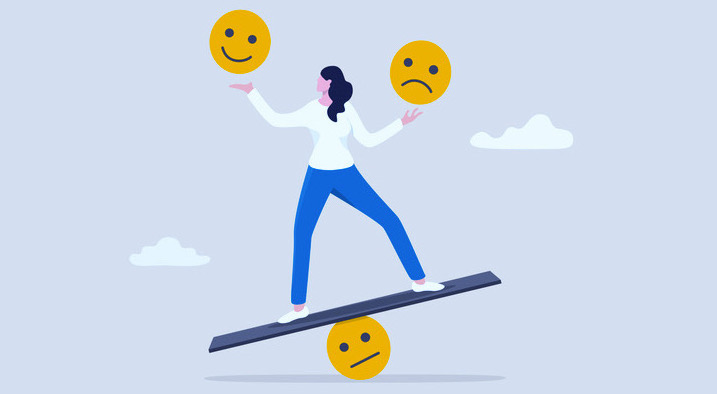 There are many things that contribute to performing our best at work, from team dynamics and company culture to individual factors in our personal and professional lives.
There are many things that contribute to performing our best at work, from team dynamics and company culture to individual factors in our personal and professional lives.
There has been a lot of cross-disciplinary research into high performance recently exploring the role our genetics, nutrition, and living environment play, and there are some straightforward things that each of us can do to optimise our performance, like getting enough sleep, eating well, and exercising.
Unfortunately, these can be the first things that fall away when we’re in times of stress and dealing with issues that urgently need our attention.
Clinical psychologist and managing director of First Response Health, Rajna Bogdanovic, joined us recently for a webinar on mindful high performance. Rajna works every day providing support to businesses and employees so they can thrive at a high-level; not only at work, but in their communities and families.
In a previous post, we explored the links between performance and levels of psychological safety at work. In this companion piece, we explore some practical changes (or “hacks”, as Rajna likes to call them) that we can implement in our daily lives to deal with stress and prioritise our health and wellbeing.
Start small; it doesn’t have to be all of them at once. Rajna recommends trying at least one or two each week and building up slowly from there.
Physiology hacks
These are all hacks for what Rajna calls “the pillars of physical health” that we need to be able to perform at a high level.
Diet
Our diet obviously has a big impact on our functionality. Rajna likens our digestive tract to a second brain, as it contains around 39 trillion cells and hosts around 95% of our serotonin (the mood-boosting chemical) receptors and 70% of our immune cells.
So, increasing your biodiversity in your gut microbiome can help boost health and the stability of our moods.
- Eat a wide variety of whole, plant-based foods (40 plus a week), and include fermented foods (e.g. kefir, sauerkraut, and kimchi).
- Reduce preservative-laden and highly-processed foods, which increase inflammation in our gut.
- Reduce your sugar intake. Humans aren’t designed to cope with a lot of sugar and it creates peaks and troughs - after the sugar “high”, we dip and start to lose our concentration and have difficulty with impulse control.
- Reduce your alcohol consumption. Alcohol is a toxin that impacts every single cell in our body, impairing sleep, recovery, and decision-making. Try minimising or eliminating alcohol where possible, keep to recommended limits (10 standard drinks a week for women and 15 for men), and don’t drink before you sleep. Also mitigate alcohol's effects by maintaining your cardiovascular fitness and a healthy diet.
Get active
We are not designed to be sedentary. Get a standing desk, stand in the correct posture, and get a spongy mat underneath your feet. If you have to sit, get up hourly and contract your muscles (this releases a natural antidepressant).
Breathe
Practise resonant (5:1:5) breathing: breathe in for five seconds, hold for one, and breathe out for five. This helps to promote relaxation.
Get more sleep
Sleep is one of your best recovery tools, so aim to go to sleep before midnight - that's when the body's natural sleep-wake cycle is primed for sleep and you are most likely to get high-quality, restorative sleep. Avoid using your phone or computer before you go to bed.
Know your chronotype
Your chronotype is based on your body clock and when you’re at optimal capacity to perform. It may be early morning, middle of the day, or at night. If possible, work at that time (it's a little bit easier with flexible work being more common).
Psychology hacks
Rajna has “around 50,000” hacks for optimising your performance in terms of what you think, what you look at, and what you listen to, but these are the most important.
Catch mental rumination and set aside “worry time”
We all know that thoughts are powerful, but mental load can be taxing for us in terms of brain power and creating stress hormones, so it’s important to be aware of mental rumination and to catch it when it happens.
Rajna says many of our cognitive distortions or self-limiting beliefs are created by our brain trying to keep us safe by pushing us away from scary or new experiences.
It may take the assistance of a trained psychologist, but a powerful and simple technique to lower anxiety is to create “worry time” each day, where we give ourselves 10-15 minutes to sit and think about all the worries we have.
The aim is to recognise the fears and concerns, and to name them (“name to tame”, as she says).
Over time, you should notice that you don't actually have that many worries, but instead have several themes of worries. When rumination comes during the day, you will learn to see the patterns and set the thoughts aside for the next day's "worry time".
Reframe your thoughts
Reframing our thoughts starts with identifying the thought we want to alter and then challenging it by finding a more balanced thought to replace it with. It takes practice and repetition to be effective.
Rajna says even people who are high-performers have tricky or repetitive “sticky” thoughts that need to be reframed on a daily basis.
Create optimism
Part of what reframing does is it helps build hopefulness and open-mindedness, so instead of sitting in a place of rumination and worry we are able to reframe, move on quickly, and find solutions.
Put away your phone
Research has found that people who have their phone next to them, even if they're not using it, take 40 percent longer to perform tasks.
So if you need to focus, get an important piece of work done, or do some deep cognitive thinking, try putting your phone in another room or on aeroplane mode.
Look at greenery and horizons
Rajna says that there is a body of evidence to show that looking at green landscapes and horizons creates a sense of optimism.
Even if you can’t look out over a beautiful landscape, you can still add more green space to offices or workplaces by using a variety of plants (natural or artificial), and hanging paintings or pictures of nature and horizons. Even screensaver images on a computer can help.
Also think about lighting and offering a variety of light. Bright light is typically good for work performance but people may also need breakout or mental health spaces with dim lights or other types of light that can help them recharge.
Get to know your hormones
We all have hormones (men as well as women!) and the levels fluctuate, whether it’s related to ageing, our menstrual cycle, or menopause. Rajna says it can be a taboo topic, but hormones are a normal part of life so we need to understand them and their effect on our performance.
That starts with understanding which age and stage we are in and the cognitive and physiological changes we go through, so rather than getting stressed, we can use the knowledge to our advantage and thrive.
Get to know the vagus nerve
The vagus nerve is the longest nerve in our autonomic nervous system and is critical to many of our bodily functions, including heart rate, digestion, breathing, and counteracting our fight/flight response.
Rajna recommends learning techniques to become more resilient by stimulating or ‘resetting’ the vagus nerve in times of stress. Resonant breathing, meditation, or yoga work for some people, while for others tapping particular points of the body can stimulate the nerve.
Keep learning
Resilience is a term that gets used a lot, but it's not just the capacity to bounce back or bounce forward. Rajna says there's much more to it.
From all her years working with high-performing people, she’s seen that our brain is malleable (also known as brain plasticity or neuroplasticity). Until quite recently, it was thought the brain would lose its plasticity as we age, but we now know that it's plastic for life and we can keep creating new neural pathways.
This means that like our physical abilities, our mental capacity can be developed, through great social support, through constant learning, and being challenged, e.g. by an executive coach, a psychologist, or even a boss or work colleagues.
We should always seek to keep growing, learning, and developing.



